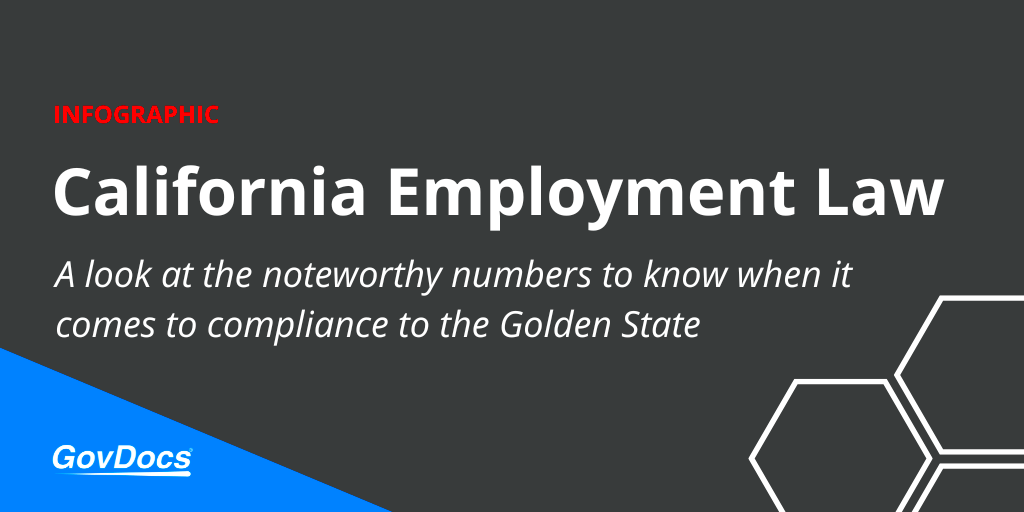Understanding California Employment Rights
California comes through with all sorts of good labour laws that protect your rights as an employee; this means it’s important to understand how these things fit together when you work in this state. There are protections such as proper payments and non-discriminatory working conditions that aim to enhance equity in workplaces. This article will be looking at some fundamental elements on employment rights within California with a view of empowering employees with knowledge on self-advocacy issues.
Overview of Employee Rights in California

The state of California has various rights for employees meant to provide them with fair treatment and security at work. These are some important rights of employees:
- Right to a Safe Workplace: Employers must provide a safe working environment free from hazards.
- Right to Fair Wages: Employees are entitled to receive at least the state minimum wage and timely payment for hours worked.
- Protection from Discrimination: Employees are protected against discrimination based on race, gender, age, disability, and other characteristics.
- Right to Family Leave: Employees can take time off for family or medical reasons without fear of losing their jobs.
- Right to Workers’ Compensation: Employees injured on the job have the right to receive compensation for their injuries.
Gaining knowledge about these rights enables workers to comprehend what they are entitled to, as well as where they can go for assistance if required.
Understanding Wage and Hour Laws

The laws of wage and hour in California are meant to provide for just salaries for those who work. The following are the principal parts:
| Aspect | Description |
|---|---|
| Minimum Wage | As of 2024, the minimum wage in California is $15.50 per hour for all employers. |
| Overtime Pay | Employees are entitled to overtime pay (1.5 times their regular rate) for hours worked over 8 in a day or 40 in a week. |
| Meal and Rest Breaks | Employees working more than 5 hours are entitled to a 30-minute meal break and a 10-minute rest break for every 4 hours worked. |
| Payment of Wages | Employers must pay employees on regular paydays and provide itemized statements detailing hours worked and deductions. |
If you know what these laws are, you can be able to make sure that you are being remunerated in a fair way. Additionally, if any problems arise, it’s important they are solved quickly by either talking to the boss or seeking legal advice.
Exploring Discrimination and Harassment Protections

In October 2023 you were trained with data. By doing so, all employees are guaranteed an environment that is devoid of bias, intimidation or other undesired behavior patterns. There are several reasons for needing to know your rights as an employee because these range from different types of issues.
Discrimination can happen based on several different factors, including:
- Race
- Gender
- Age (40 and older)
- Disability
- Sexual Orientation
- Religion
- Pregnancy
In contrast, harassment could assume various manifestations, for instance, unwelcome approaches, unsuitable jesting, or distasteful remarks. It is the duty of employers to maintain safety in workplaces and respond to grievances quickly. In this regard, workers can undertake the following steps:
- Documenting incidents of discrimination or harassment.
- Reporting the issue to HR or a supervisor.
- Filing a complaint with the California Department of Fair Employment and Housing (DFEH).
Having a grasp on these safeguards is essential for the employees as it helps them to advocate for their own rights and maintain a mentally healthy working environment.
Unpacking Family and Medical Leave Rights

Family and medical leave rights in California are designed to help employees manage personal and family health issues without fearing job loss. Under the California Family Rights Act (CFRA), eligible employees can take up to 12 weeks of unpaid leave for specific reasons.
Causes of absenting from work consist of:
- Bonding with a new child: This includes both biological and adopted children.
- Caring for a family member: This can be a parent, spouse, child, or domestic partner with a serious health condition.
- Employee’s own serious health condition: Employees can take time off to manage their health issues.
In order for employees to be eligible for CFRA leave, they should:
- Work for a covered employer (with 5 or more employees).
- Have worked for the employer for at least 12 months.
- Have worked at least 1,250 hours in the past 12 months.
Employees who are on leave have the entitlement to go back to their same or an equivalent position. Just as a matter of importance, appropriate notification should be given to the employer and any procedures established maintained.
Understanding Workers’ Compensation Benefits
A workers’ compensation plan is critical for employees who get hurt at work. Employees who suffer injuries or illnesses related to their work are entitled to receive benefits through the California workers’ compensation system so that they can get help during recuperation.
The main advantages of workers’ compensation are:
| Benefit | Description |
|---|---|
| Medical Treatment | Coverage for necessary medical expenses related to the injury or illness. |
| Temporary Disability Benefits | Payments to replace lost wages while recovering from the injury, typically around two-thirds of the employee’s regular pay. |
| Permanent Disability Benefits | Compensation for lasting effects of an injury that affects the employee’s ability to work. |
| Vocational Rehabilitation | Support for retraining or finding new employment if the injury prevents returning to the previous job. |
Following the immediate report of injury to an employer, employees are expected to file a claim and also go for medical treatment. To ensure that the claim is processed without any hitches, it is important to follow each and every step required. In time of adversity, employees can comprehend the merits of these benefits by understanding them fully.
Recognizing Wrongful Termination Laws
In the event that an employee is dismissed from his position, it is termed wrongful termination if such dismissal happens contrary to law or any employment contract previously entered into. California has strong safeguards against wrongful termination whereby employees cannot be terminated due to discrimination or retaliation for claiming their rights. Thus, mechanisms of comprehending such laws will make it easier for employees to identify if they are victims of wrongful termination.
Here are some of the valid reasons for wrongful termination:
- Discrimination: Firing someone based on race, gender, age, disability, or other protected characteristics.
- Retaliation: Dismissing an employee for complaining about discrimination, harassment, or unsafe working conditions.
- Violation of Public Policy: Terminating an employee for refusing to engage in illegal activities or for taking legally protected leave.
- Contract Breach: Termination in violation of an employment contract that specifies conditions for termination.
When an employee considers that they were unfairly fired,Gathering evidence in relation to the condition of their departure is crucial. Records on communications, performance evaluation and any other events preceding the firing might prove out to be very important. Being legally advised can significantly simplify the process of claiming wrongful dismissals.
How to File a Complaint for Employment Rights Violations
It is important to file employment rights violations in order to seek justice and remedies. If you think there has been a violation of your rights, then California outlines detailed guidelines on how such matters can be reported. The following is an easy guide about the process of filing complaints:
- Identify the Violation: Clearly understand the nature of the violation, whether it’s wage theft, discrimination, harassment, or unsafe working conditions.
- Document Evidence: Gather all relevant documentation, including emails, pay stubs, and any witnesses who can support your claim.
- Contact the Employer: Consider discussing the issue with your supervisor or HR department first. Sometimes, issues can be resolved internally.
- File a Complaint with the Appropriate Agency: Depending on the violation, you can file a complaint with agencies like the California Department of Fair Employment and Housing (DFEH) or the Division of Labor Standards Enforcement (DLSE).
Ensure that you submit your complaint within the time stipulated since failing to do so might adversely affect your case. Following the filling of the complaint, it is likely that you may have to take part in an investigation and legal assistance may prove useful moving forward.
Frequently Asked Questions
California has a dynamic labor market and always changing employment laws, leading to a lot of questions about labor rights. Here are some commonly asked questions asked by the people:
- What should I do if I think I’m being discriminated against? Document everything and report the issue to HR or a supervisor. If necessary, consider filing a complaint with the DFEH.
- How do I know if I am eligible for family leave? You are eligible if you have worked for your employer for at least 12 months and have logged at least 1,250 hours of service.
- What can I do if my employer retaliates against me for filing a complaint? Document any retaliatory actions and consult with a legal professional to discuss your options.
- Can I sue my employer for wrongful termination? Yes, if you believe your termination violated the law, you may have grounds for a lawsuit. It’s advisable to consult with an attorney specializing in employment law.
Being aware of your entitlements and knowing how to act right will enable you deal with matters pertaining to employment well.


